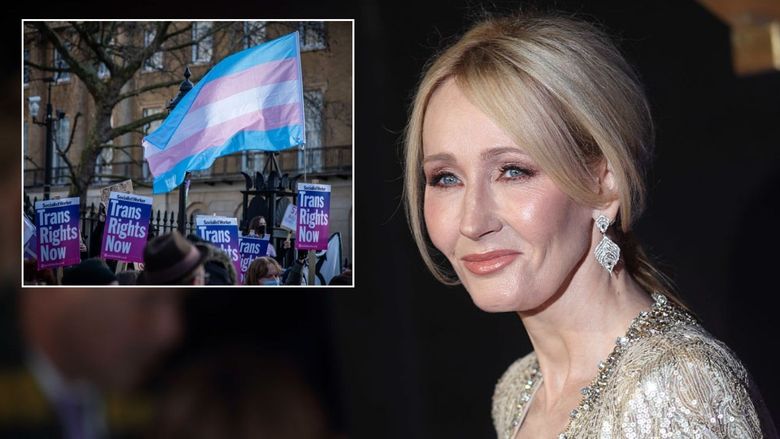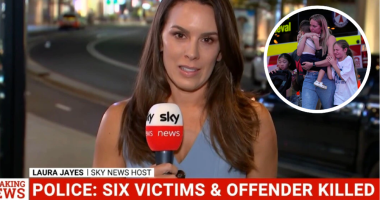JK Rowling, the renowned author of the Harry Potter series, has been a vocal critic of Scotland’s new Hate Crime and Public Order (Scotland) Act, which came into effect on April 1, 2024. This legislation aims to provide greater protection for victims and communities by consolidating existing hate crime laws and introducing new offenses for threatening or abusive behavior intended to stir up hatred based on age, disability, religion, sexual orientation, transgender identity, and variations in sex characteristics. However, Rowling and other critics argue that the law could potentially criminalize freedom of expression, leading to concerns about its implementation and enforcement.

Key Takeaways:
- Aims of the New Law: The Scottish government’s Hate Crime and Public Order (Scotland) Act is designed to enhance protection for victims and communities by consolidating existing hate crime laws and introducing new offenses related to stirring up hatred based on various grounds.
- Controversy and Concerns: Critics argue that the law could be used maliciously against certain groups, particularly gender-critical feminists, and that it may lead to a chilling effect on freedom of speech. There are also concerns about the pressure on the police force and the adequacy of training for officers to handle these complex issues.
- JK Rowling’s Position: Rowling has been a target of criticism and potential legal action under the new law, with some activists threatening to lodge complaints against her for her gender-critical statements. This has led to discussions about the law’s application and the potential for misuse.
- Police Response and Training: Police Scotland has promised to investigate all complaints made under the new legislation and has provided training to officers to apply the law in a measured way. However, there are concerns about the additional demands on officers and the potential for the law to be used to curtail freedom of speech.
- Legal and Political Responses: The Scottish National Party (SNP) has admitted that Rowling could be targeted by trans activists under the new law, while the Scottish Tory leader has criticized the law as “unworkable and dangerous.” The law’s threshold for criminal liability is based on whether a reasonable person would consider the perpetrator’s action or speech to be threatening or abusive, rather than on the victim’s feelings.
Rowling’s criticism of the new laws is rooted in her belief that the legislation could lead to an overreach in policing and the criminalization of legitimate discourse. She has expressed skepticism about the police’s ability to distinguish between legitimate criticism and hate speech, suggesting that the police will be “very busy” under the new law. Rowling has also been involved in a public dispute with transgender broadcaster India Willoughby, where she was accused of misgendering Willoughby by referring to her as a man. This incident highlighted the potential for the new laws to be used to target individuals for their public statements, even if those statements are not intended to incite hatred.
🎉🌼🌸April Fools! 🌸🌼🎉
— J.K. Rowling (@jk_rowling) April 1, 2024
Only kidding. Obviously, the people mentioned in the above tweets aren't women at all, but men, every last one of them.
In passing the Scottish Hate Crime Act, Scottish lawmakers seem to have placed higher value on the feelings of men performing their…
Elon Musk, the CEO of Tesla, has also criticized the new Scottish hate crime laws, echoing Rowling’s concerns about the potential impact on freedom of speech. Musk’s criticism was prompted by a post from Malaysian right-wing influencer Ian Miles Cheong, who summarized a story about the training police will receive to enforce the new bill.
The Scottish National Party (SNP) has acknowledged that individuals like Rowling could potentially be targeted under the new laws, especially if activists lodge formal complaints about their statements. This admission has led to concerns about the practicality and fairness of the legislation, with critics arguing that it could be used to silence legitimate criticism and debate.
The controversy surrounding the new hate crime laws has sparked debates about the balance between protecting victims of hate crime and safeguarding freedom of expression. While the Scottish government insists that the law is necessary to protect victims, critics argue that it could lead to an overreach in policing and the criminalization of legitimate discourse.

JK Rowling’s criticism of Scotland’s new hate crime laws reflects broader concerns about the potential impact of such legislation on freedom of expression and the fairness of its enforcement. The debate surrounding the new laws underscores the complexities of balancing the protection of vulnerable groups with the preservation of open dialogue and debate.
Don’t Miss | Parents’ Choice in Class Photo Leads to ‘Disbelief’ Over Erin’s Exclusion







